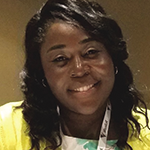Linda Childers is a health writer located in the San Francisco Bay Area.
ad goes here:advert-1
ADVERTISEMENT
SCROLL TO CONTINUE
ARP Membership
The ARP welcomes health educators to its membership rolls, along with:
- Basic and clinical researchers;
- Biostatisticians and medical informatics personnel;
- Dietitians (“Why You Should Consider Adding a Dietitian to Your Team”);
- Epidemiologists;
- Laboratory technicians;
- Librarians;
- Nurses;
- Office administrators, managers and staff;
- Patient advocates;
- Pharmacists (“What Pharmacists Want Rheumatologists to Know“);
- Physician assistants and nurse practitioners, also identified as advanced practice providers (“Why & How to Add Advanced Practice Clinicians to Your Practice,”);
- Physical and occupational therapists (“What Physical & Occupational Therapists Wish Rheumatologists Knew,”);
- Psychologists;
- Radiologists;
- Research coordinators (“Developing & Leading a Research Team“);
- Social workers (“How Rheumatologists Can Better Partner with Social Workers”); and
- Sociologists.
For more information, contact [email protected].
References
- Chambliss ML, Lineberry SN, Evans WE, Bibeau DL. Adding health education specialists to your practice. Fam Pract Manag. 2014 Mar–Apr;21(2):10–15.
- Metelski L. What people with lupus want: Results from health education surveys. Presented at Rheumatology Nurses Society Annual Conference; Orlando. 2010 Aug 7–10.
- Senara SH, Wahed WYA, Mabrouk SE. Importance of patient education in management of patients with rheumatoid arthritis: An intervention study. Egypt Rheumatol Rehabil. 2019;46(1):42–47.
- Lee YC, Kremer J, Guan, H, et al. Chronic opioid use in rheumatoid arthritis: Prevalence and predictors. Arthritis Rheumatol. 2019 May;71(5):670–677.
- Wimmer M, Wiesel R, Adams B, et al. Complementary practices as alternatives to pain: Effectiveness of a pain management program for patients in an orthopedic clinic [abstract]. Arthritis Rheumatol. 2018; 70(suppl 10).
Editor’s note: Positions of those interviewed were current when this was written, but may have changed before publication.



